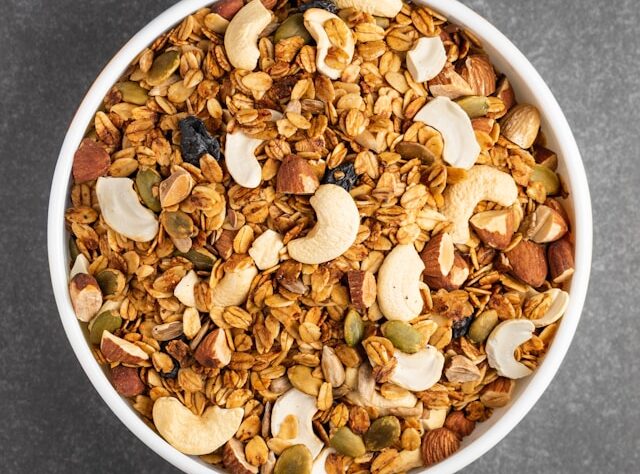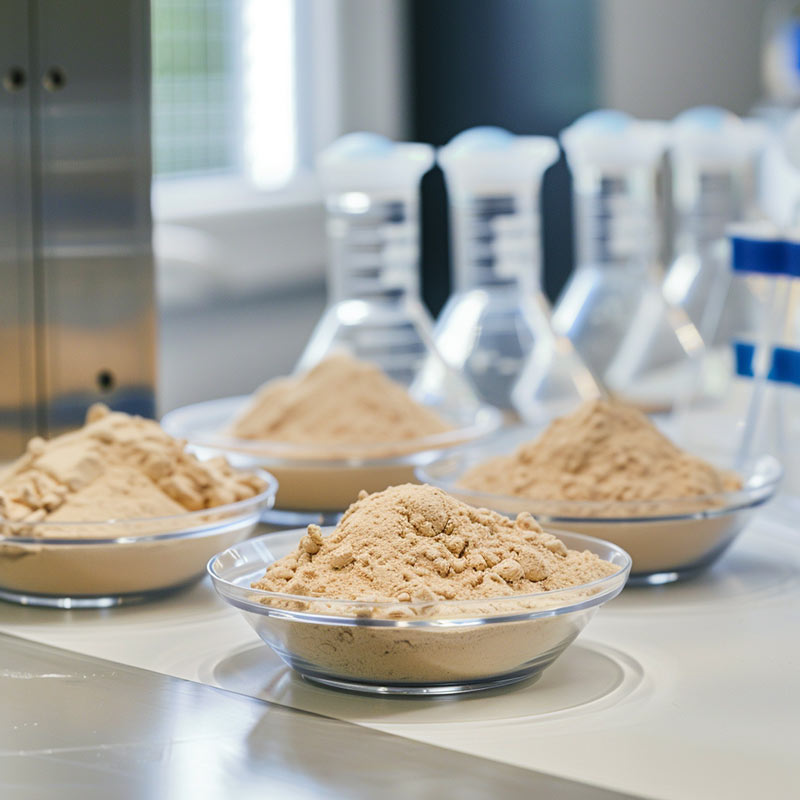Control ageing from 40: Everything you need to know
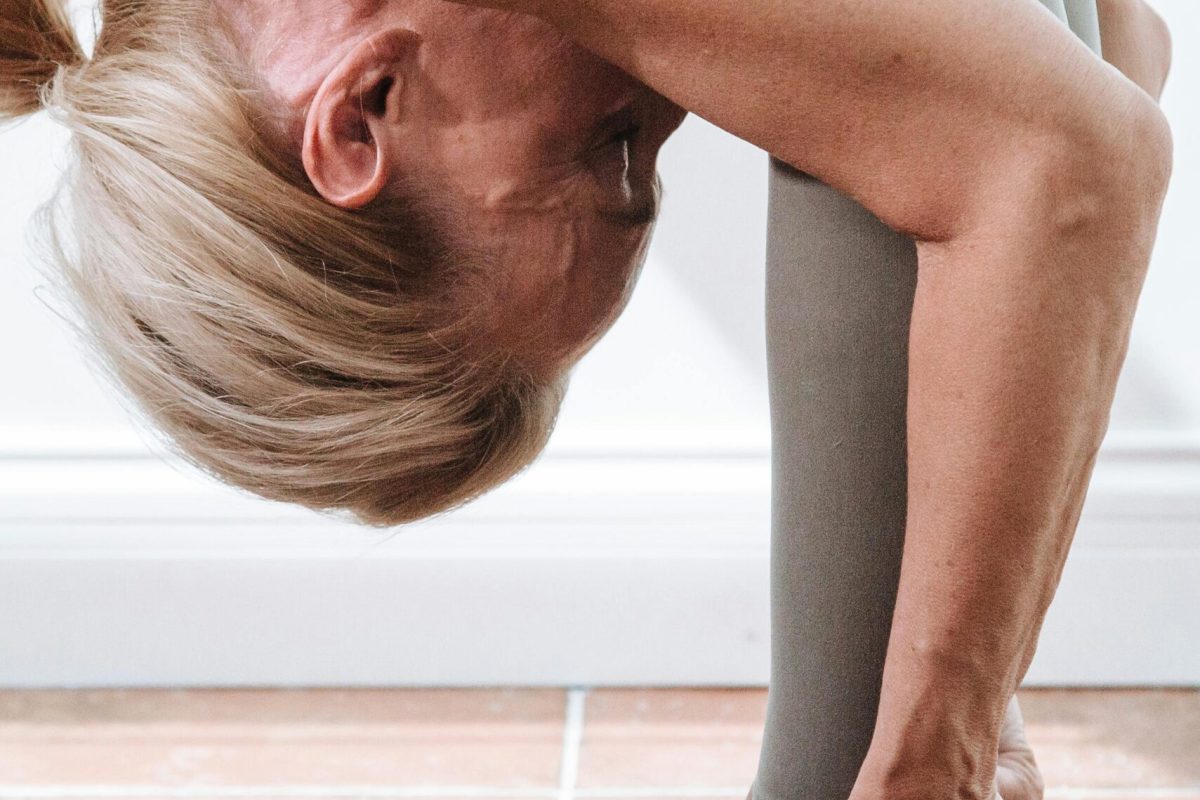

Prevention instead of therapy
70% of your age can be influenced by lifestyle

Strength training and exercise:
Basis for vitality and muscle health from 40

Nutrition, protein and stress reduction:
The key to healthy ageing.
Why the ageing process is a turning point after 40
Up to around the age of 30, the ageing process takes place fairly evenly in almost all people. Vitality, physical fitness and mental performance remain stable. However, from the age of 40, life paths begin to differ: While some people remain fit and active for decades, others begin to notice the first limitations – be it in mobility, muscle strength or mental fitness.
The following figure illustrates this turning point:
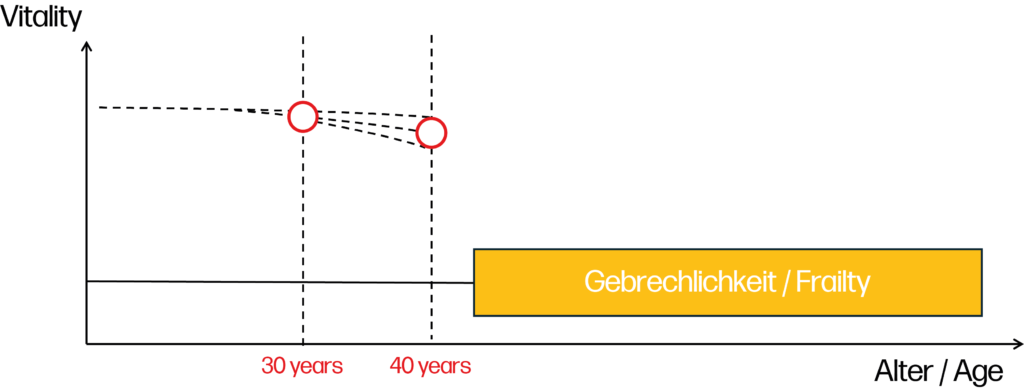
Why? From the age of 40, the biological ageing process can take very different paths. Some people maintain their vitality almost effortlessly, while others move towards frailty. The crucial point: This course is not predetermined – it can be influenced.
Tip: Want to find out how ageing affects your fitness and athletic performance? You can find all the important information here!
The 70-30 rule: how to determine your own ageing process
Science makes it clear: 70% of your biological age depends on your lifestyle. Only 30% is genetic.
What that means for you:
- Environmental factors such as stress management, sleep quality and exposure to pollutants play a role.
- Lifestyle such as diet, exercise and daily routines directly influence your health.
- Mental health has a huge impact on your body. Mindfulness and stress reduction promote your well-being and help prevent chronic illnesses.
Even small changes in these areas can have a big impact. Prevention is not just an option – it is essential to positively shape the ageing process.
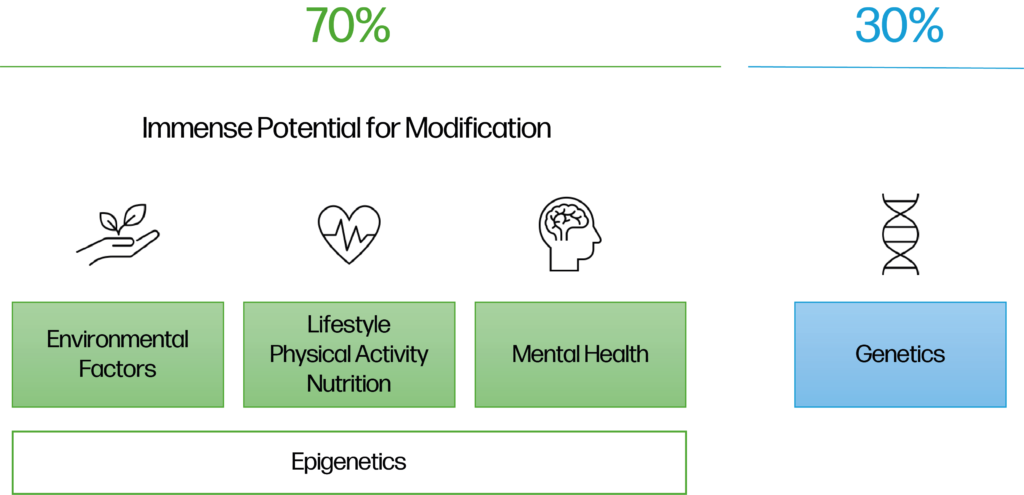
Why prevention is better than therapy
Controlling ageing from the age of 40 means that you become active at an early stage to prevent illnesses and limitations. Chronic diseases such as cardiovascular diseases, diabetes or dementia often develop gradually over many years. They do not occur suddenly, but develop through unnoticed, gradual processes. Taking care of your health only when the symptoms are visible is like renovating a house that is already threatening to collapse. Prevention, on the other hand, allows you to avoid problems before they even arise.
A striking example is the loss of muscle mass, also known as sarcopenia. Ab dem 30 years of age the body slowly begins to lose muscle mass. Without regular exercise and sufficient protein intake, you lose muscle mass with each passing decade. Significantly more muscle. Die Folgen sind Reduced force, limited mobility and an increased risk of frailty.
The good news is: Sarcopenia is not an inevitable fate. Durch Targeted measures such as regular strength training and a protein-rich diet you can not only slow down this process, but even reverse it.
“Make Prevention a Treatment.”
The best preventive measures for people over 40
Here are four key measures to actively influence your ageing process:
1. exercise: Your strongest ally against ageing
How to stay active:
Regular exercise helps to control ageing after 40 by preventing muscle loss and promoting flexibility. Without exercise, you lose up to 2 % muscle mass every year.
- Daily exercise: Plan at least 30 minutes of moderate activity such as walking, cycling or swimming.
- Muscle building: Strength training 2-3 times a week helps you to maintain and build muscle.
- Flexibility: Stretching exercises promote mobility and reduce the risk of injury.
- Make everyday life active: Use stairs instead of elevators and integrate short exercise breaks into your daily routine.
2. how nutrition influences the ageing process:
The right diet is essential to control ageing after 40. Your body now needs more support to maintain muscles, bones and the immune system.
What you should look out for:
- Proteins: From the age of 40, your body needs about 1.5 g protein per kilogram of body weight. Gute Quellen sind Eier, Fisch, mageres Fleisch, Hülsenfrüchte und Proteinshakes. Learn more about protein
- Omega-3 fatty acids: High-fat fish such as salmon or mackerel and high-quality supplements have an anti-inflammatory effect and promote heart health.
- Vitamin D: Have your vitamin D level checked and supplement if necessary. It is essential to protect bones and muscles.
- Eat a balanced diet: Focus on fruits, vegetables, whole grains and healthy fats, while reducing sugar and processed foods.
Tip: NoDoubt SilverGreen iis a scientifically developed formula specially tailored to the needs of people aged 40 and over. It combines high-quality protein, a high dose of leucine, omega-3 fatty acids and antioxidant goji berries to support muscle maintenance, increase vitality and promote general well-being. Find out more about this product here: NoDoubt SilverGreen
3. reduce stress and prioritize sleep
Why stress and sleep are important:
- Your body regenerates while you sleep. Good sleep improves brain function, strengthens the immune system and reduces the risk of chronic diseases.
- Stress management helps you to control the ageing process from the age of 40 and increase your well-being.
Measures:
- Reduce stress: Try yoga, breathing exercises or meditation.
- Optimize sleep: Aim for 7-8 hours of sleep. Avoid screens before going to bed and ensure a quiet sleeping environment.
4. give up smoking and reduce alcohol
Smoking is one of the biggest accelerators of ageing. Regular alcohol consumption also promotes inflammation and accelerates the ageing process.
Why this is important:
- By avoiding harmful substances, you strengthen your body’s protective mechanisms and give it the opportunity to regenerate.

Anti-ageing tips for women over 40
Although women have a longer life expectancy than men, they often spend more years in frail health. This is because women can compensate for physical changes for a long time and remain outwardly stable. However, once this point is passed, a rapid and drastic decline often follows. Frailty then manifests itself in muscle loss, reduced mobility and a higher risk of illness – a gradual process that is often taken seriously too late.
Three steps to prevent frailty:
- Protein and leucine: A daily 1.5 g of protein per kilogram of body weight, supplemented with 5 g of leucine, helps to maintain and strengthen the muscles.
- Exercise: Regular strength training promotes muscle health and improves mobility.
- Vitamin D check: Annual checks ensure the health of bones and muscles.
Myths debunked: Protein doesn’t make you “bulky” – it keeps you strong and agile.
With these three measures, you can lay the foundations for an active and independent life in old age.
Conclusion: act now to control ageing
Prevention is not a luxury – it is the basis for a healthy and independent life in old age. With the right choices in exercise, nutrition, sleep and stress management, you can determine the course of your ageing yourself.
The result: Fit 90-year-olds have the same quality of life as frail 75-year-olds. The difference? Prevention. It pays to start today.

